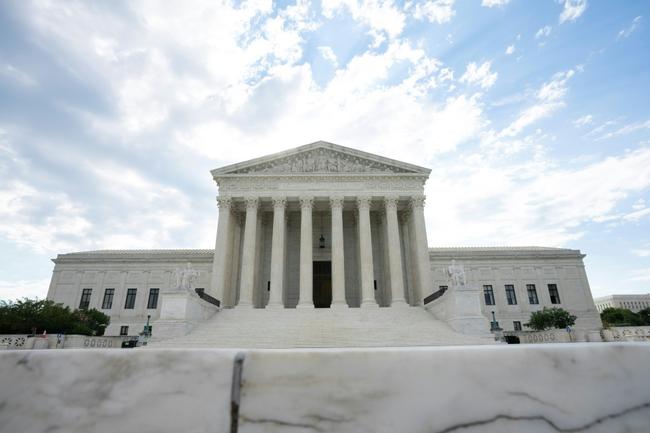US Supreme Court weighs judicial checks on Trump with birthright case
US Supreme Court weighs judicial checks on Trump with birthright case

Breaking News
Don't miss out on the headlines from Breaking News. Followed categories will be added to My News.
The US Supreme Court appeared divided on Thursday on whether federal judges have the right to issue nationwide blocks to presidential decrees, as they heard arguments about President Donald Trump's bid to scrap birthright citizenship.
The case before the court involved Trump's executive order ending automatic citizenship for children born on American soil, but the question at hand was whether a single district court can freeze an executive branch move with a universal injunction.
Other Trump initiatives have also been blocked by judges -- both Democratic and Republican appointees -- leading the president to make an emergency appeal to the Supreme Court, where conservatives make up a 6-3 majority.
A ruling by the court in favor of the administration could have far-reaching ramifications for the ability of the judiciary to rein in Trump or future American presidents.
Both conservative and liberal justices expressed concerns during oral arguments about the increasing use of nationwide injunctions by district courts in recent years, but appeared divided and uncertain about how to tackle the issue.
Arguments had been scheduled for an hour but went on for more than two and barely touched on the legality of Trump's birthright citizenship order, which has been paused by courts in Maryland, Massachusetts and Washington state that deemed it unconstitutional.
Justice Samuel Alito, an arch-conservative, said nationwide injunctions pose a "practical problem" because there are hundreds of district court judges and every one of them is "convinced" they know best.
Justice Elena Kagan, one of the three liberals on the court, noted that justices across the ideological spectrum have "expressed frustration at the way district courts are doing their business," but said in the birthright case, "the courts keep deciding the same way."
"You just keep losing in the lower courts," Kagan told the government's lawyer, Solicitor General John Sauer.
- 'Nuclear weapon' -
Sauer compared nationwide injunctions to a "nuclear weapon," saying they "disrupt the Constitution's careful balancing of the separation of powers."
The Trump administration is asking the Supreme Court to restrict the application of a district court's injunction solely to the parties who brought the case and the district where the judge presides.
"Courts grant relief to the people who sue in front of them," Sauer said.
"So the notion that relief has to be given to the whole world because others who have not taken the time to sue are not before the courts results in all these problems."
Justice Ketanji Brown Jackson, a liberal, pushed back.
"Your argument seems to turn our justice system... into a 'catch me if you can' kind of regime," Jackson said, "where everybody has to have a lawyer and file a lawsuit in order for the government to stop violating people's rights.
"And I don't understand how that is remotely consistent with the rule of law."
Sauer responded that the government is the one being forced to go "racing from jurisdiction to jurisdiction, having to sort of clear the table in order to implement a new policy."
Past presidents have also complained about national injunctions shackling their agenda, but such orders have sharply risen under Trump, who has seen more in two months than Joe Biden did during his first three years in office.
- 'Chaos' -
Jeremy Feigenbaum, solicitor general of New Jersey, one of 23 states opposing the bid to end birthright citizenship, said there is an "extraordinary basis" for a nationwide injunction in this case.
Allowing separate court rulings on the birthright issue would lead to "chaos on the ground where people's citizenship turns on and off when you cross state lines," Feigenbaum said.
Trump's executive order decrees that children born to parents in the United States illegally or on temporary visas would not automatically become citizens.
The three lower courts ruled that to be a violation of the 14th Amendment, which states: "All persons born or naturalized in the United States, and subject to the jurisdiction thereof, are citizens of the United States."
Trump's order "reflects the original meaning of the 14th Amendment, which guaranteed citizenship to the children of former slaves, not to illegal aliens or temporary visitors," Sauer said.
The Supreme Court rejected such a narrow definition in a landmark 1898 case.
Whatever the justices decide on nationwide injunctions, the actual question of whether Trump can legally end birthright citizenship is expected to be back in front of the top court before long.
cl/sst
Originally published as US Supreme Court weighs judicial checks on Trump with birthright case


